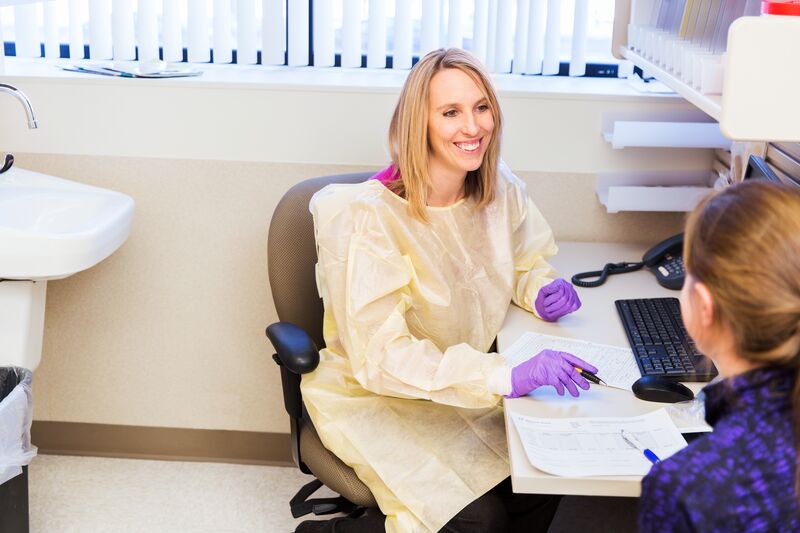Fungal Vaginitis
Certain antibiotics and corticosteroids (prednisone) have been known to change the normal levels of acidity and bacteria in the vagina. For this reason, women with CF are especially prone to getting fungal vaginitis (also known as thrush or a vaginal yeast infection) caused by a microorganism called Candida albicans.
Symptoms of fungal vaginitis include itching, irritation, discomfort and pain during sex or urination. Men with CF can also experience this type of infection, although this is far less common. They may display symptoms such as sores on the penis, irritation and itching.
Fungal vaginitis can often be treated easily with antifungal creams or, in more severe cases, oral medications. Natural remedies, such as eating yogurt that contains live bacterial cultures, have been thought to potentially help the body re-establish its population of beneficial bacteria. Not all of these remedies have been scientifically proven. If you are being treated for fungal vaginitis with an anti-fungal medication and take a CFTR modulator, it is important to ask your CF team on whether you need to adjust when and how you take your modulator therapy
Because fungal vaginitis is so common among women with CF, it is important to schedule annual examinations with your doctor or gynecologist. Getting regularly checked and treated for fungal vaginitis and other infections is critical to your sexual and reproductive health, and can help improve your everyday comfort significantly.
Urinary Incontinence
Urinary incontinence, or the unexpected release of small amounts of urine during activities like sneezing or coughing, is another primary reproductive health issue experienced by women with CF. One in four women with CF experience it on a regular basis. Frequent coughing can weaken the pelvic floor muscles, as can physical stresses such as childbirth. Clearing your lungs of mucus is an important form of CF treatment, so making sure that your urinary incontinence does not go untreated and prevent you from coughing fully is important to your larger CF care.
Kegel exercises can help women with CF firm up the group of muscles that support the bladder. These exercises entail regularly contracting and then relaxing your pelvic floor muscles for up to three seconds. They are recommended to be done in sets of 10 at least three times a day. By working the correct pelvic muscle group, women with CF can help prevent and control urinary incontinence.
In addition to Kegel exercises, it is important to strengthen core muscle groups in your back and abdomen to support your pelvic floor. Consultation with a physical therapist who specializes in pelvic floor therapies may be helpful. Other nonsurgical options to improve symptoms of urinary incontinence include disposable pads or tampon-like devices. Consultation with a urogynecologist or urologist may also be helpful to explore surgical options for urinary incontinence. Research surrounding urinary incontinence in CF is ongoing.
Puberty and Menstruation
One out of four adult women with CF report that their CF symptoms worsen with their menstrual cycle. The interplay between female sex hormones and CF is poorly understood. However, if you notice a change in your CF symptoms during your cycle, it is important to bring this up with your CF team.
Poor nutrition, low body weight, and compromised lung function all affect the body's ability to ovulate and menstruate regularly. For this reason, some women with CF may have absent or irregular periods associated with being underweight or malnourished. Most females with CF get their first period at a similar age compared to their peers without CF. However, studies have shown that up to one-third of young women with CF perceive that they continue to have delayed puberty compared to their peers. If you are missing your periods or ovulating less frequently it is important for you to talk to your CF team. Together, you can work on optimizing your CF health and can consider referral to a reproductive health specialist to rule out other causes for absent or irregular periods or pubertal delay.
If you are missing periods or ovulating less frequently, it is important for you to talk to your CF care team or dietitian. Together, you can work on addressing any lung or nutrition problems, improving your general health and finding ways to put on weight.


